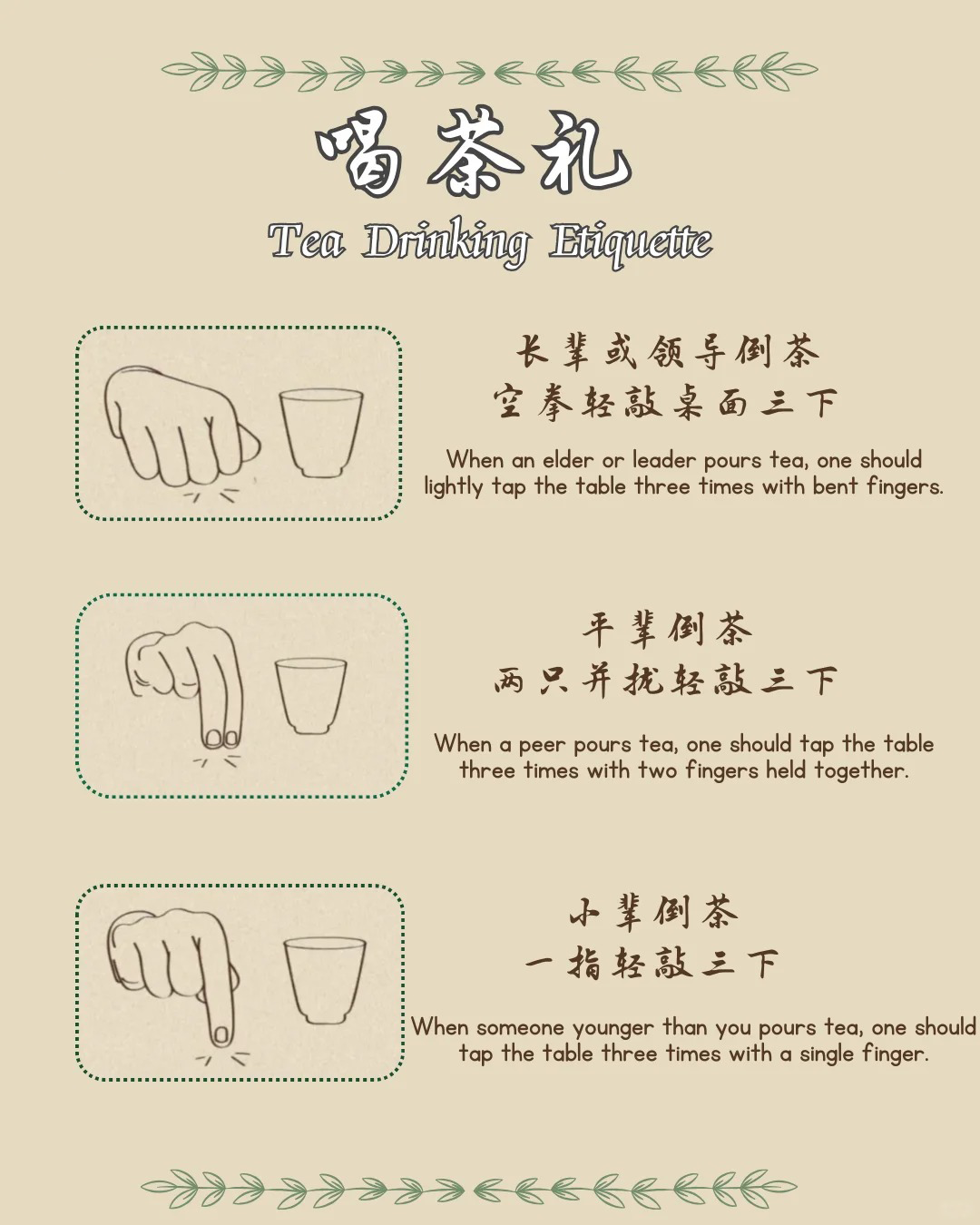

Beyond its renowned flavors and health benefits, tea drinking in China is steeped in a rich tapestry of social rituals and unspoken codes, central to which is a fascinating gesture known as the "finger tap" – a silent language of respect and gratitude.
It is a profound cultural practice woven into the fabric of social interaction, business dealings, and family gatherings. Understanding the nuances of this etiquette is key to appreciating the depth of Chinese hospitality.
Legend traces this custom back to Emperor Qianlong of the Qing Dynasty. While traveling incognito, he poured tea for his companions. Unable to bow or kowtow without revealing the Emperor's identity, his companions instead tapped their bent index and middle fingers on the table, symbolizing kneeling and bowing in gratitude.
Junior to Senior: If someone senior or deserving of respect pours your tea, lightly tap the table with your knuckles (a symbolic bow).
Peer to Peer: When peers pour tea, tap the table with your bent index and middle fingers together (symbolizing a fist-palm salute).
Senior to Junior: If a senior acknowledges a junior pouring tea, they might lightly tap the table with just a single fingertip or their knuckles.

The finger tap is more than just manners; it's a deeply ingrained, non-verbal communication of appreciation," explains the guide. "It allows thanks to be expressed fluidly during conversation without interrupting the tea service's rhythm.
Order of Serving: Tea is typically poured for guests in order of seniority or status before the host.
Receiving Tea: It's polite to receive the teacup with both hands, especially when offered by someone senior.
The "Tea Pet": Small clay figures often sit on the tea tray, receiving the first rinses of tea, symbolizing care and auspiciousness.
Refills: Guests should not let their cups sit empty for long; a subtle placement of the cup near the edge of the table or a slight turn of the lid (if using a gaiwan) can signal a request for more. The host remains vigilant to refill cups promptly.
Mastering these rituals, particularly the eloquent finger tap, transforms the simple act of drinking tea into a meaningful cultural exchange, demonstrating respect and understanding within the intricate dance of Chinese social harmony.